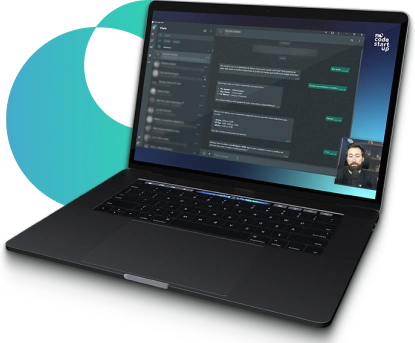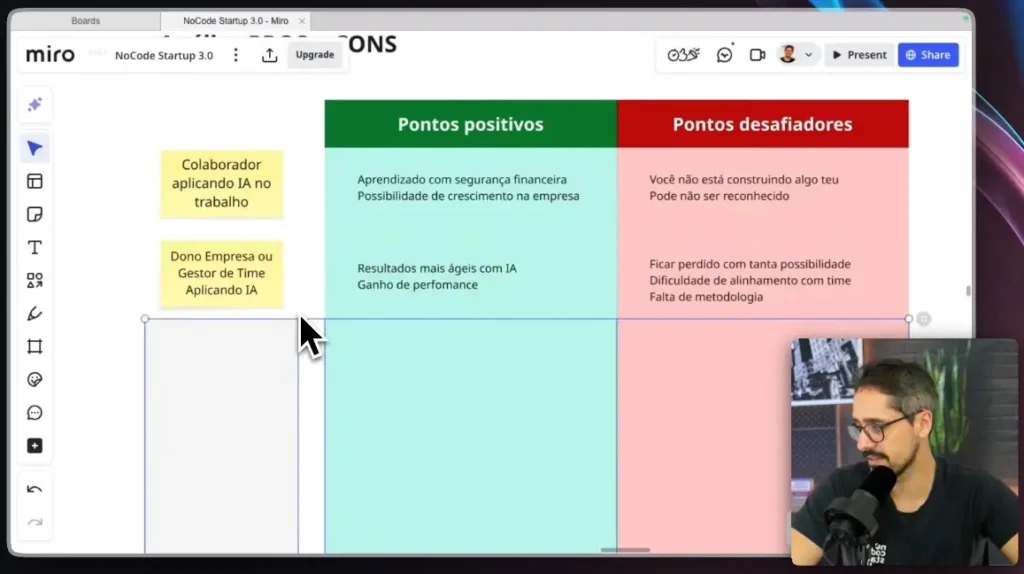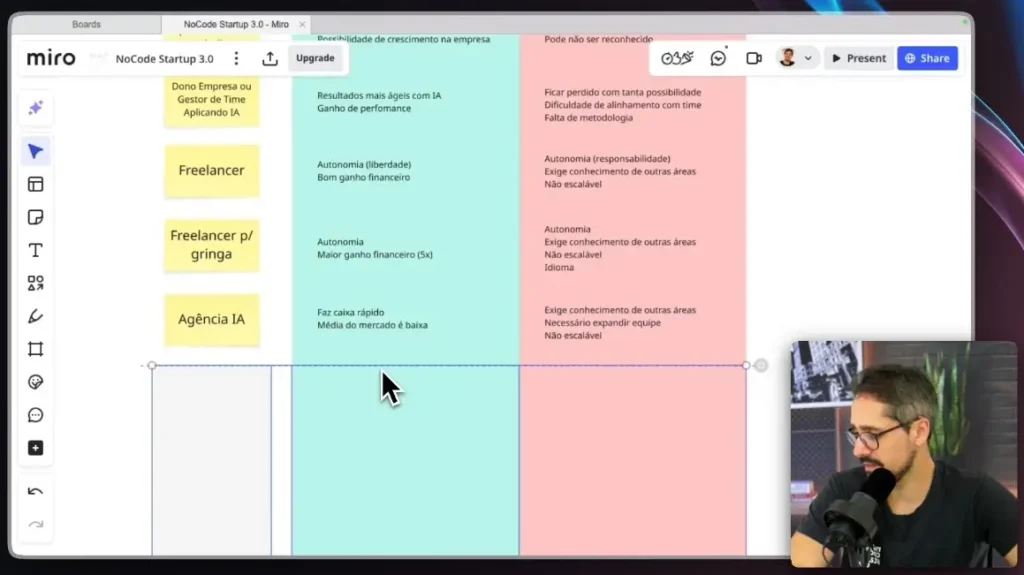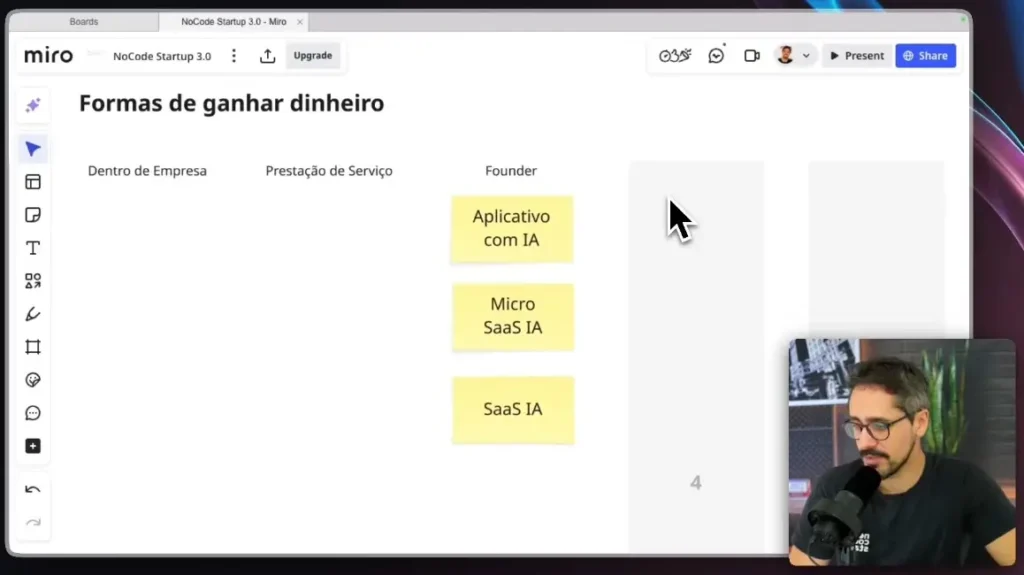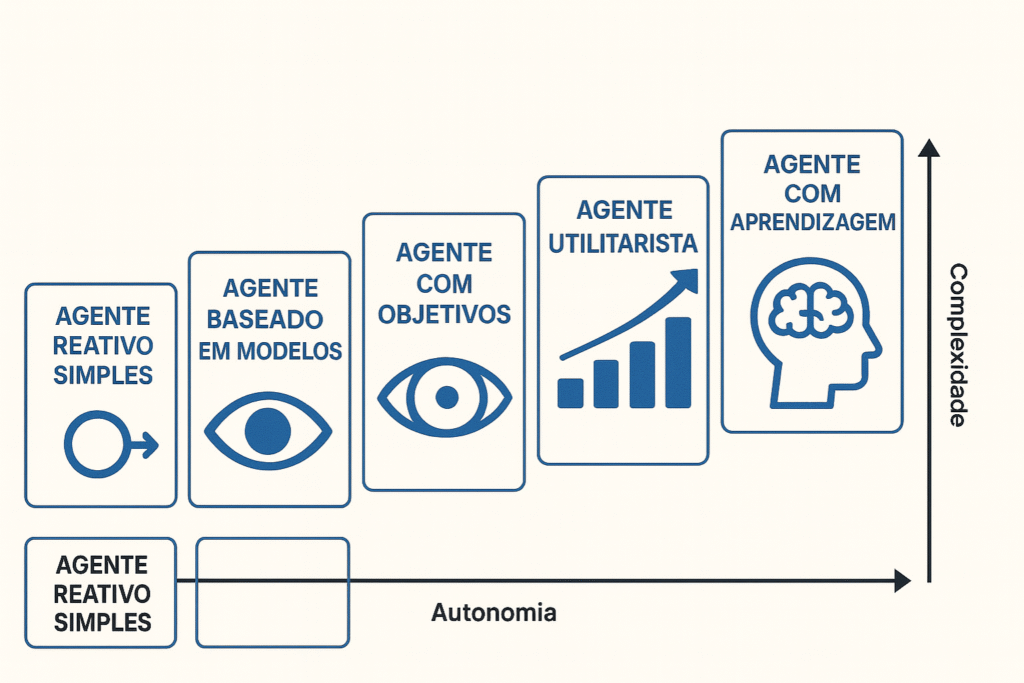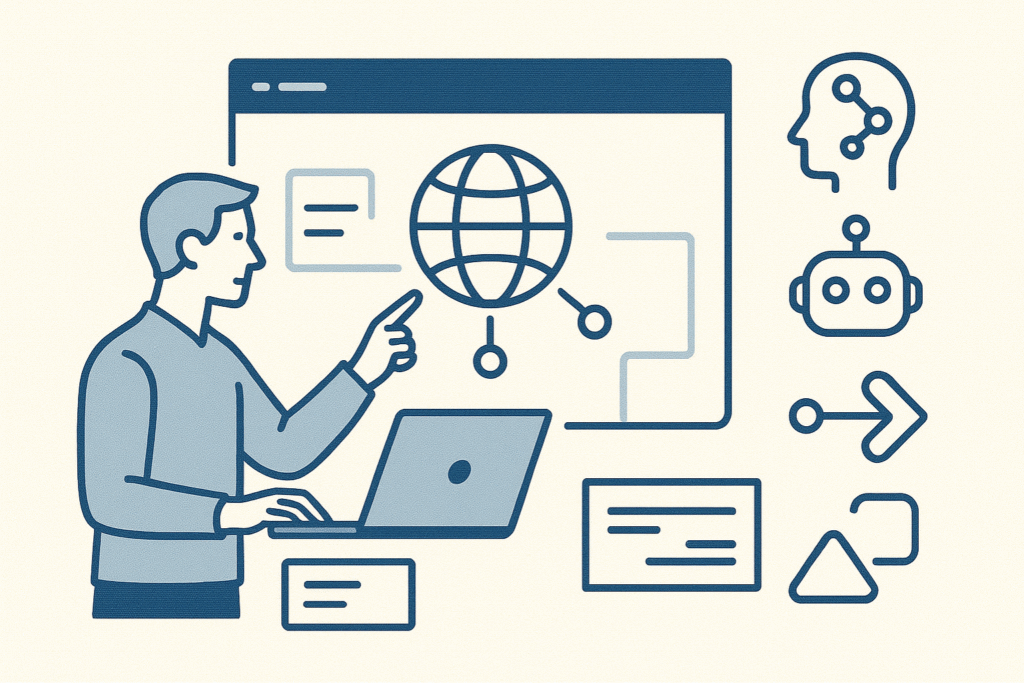You can create AI agents without programming. no-code tools They made it accessible to non-technical people.
No programming knowledge is required: the visual workflow handles integrations, logic, and publishing.
In this article, we’ll dive into the fascinating world of AI agents and show you how you can use them, even without advanced technical knowledge.
We will explore tools that are friendly to both beginners and more experienced professionals. In addition, we will highlight the crucial differences between AI agents and chatbots, helping you choose the best option for your project.
Get ready to discover how to boost your initiatives with cutting-edge technology, in a simple and effective way. Are you curious? Keep reading and learn all about this exciting topic.
Categories of No-Code Tools for AI
Building artificial intelligence (AI) agents has become easier with the advancement of No-Code tools.
These tools are ideal for those who do not have in-depth technical knowledge in programming, but want to create an innovative product. Let's understand how these tools can be useful and accessible.
Natural Language Processing (NLP) Tools
They are essential for AI agents to understand and react to human language.
With these tools, you can create systems that interact with and understand users in a natural way. Imagine developing a virtual assistant that answers frequently asked customer questions, like Chatbase, or using GPT-o3, OpenAI's latest model.
O o3 It is OpenAI's most powerful reasoning model, with multimodal performance (especially in vision) capable of analyzing images, graphs, and files and supporting step-by-step decisions, resulting in more accurate and reliable service flows.
Conversation Flow Development Tools
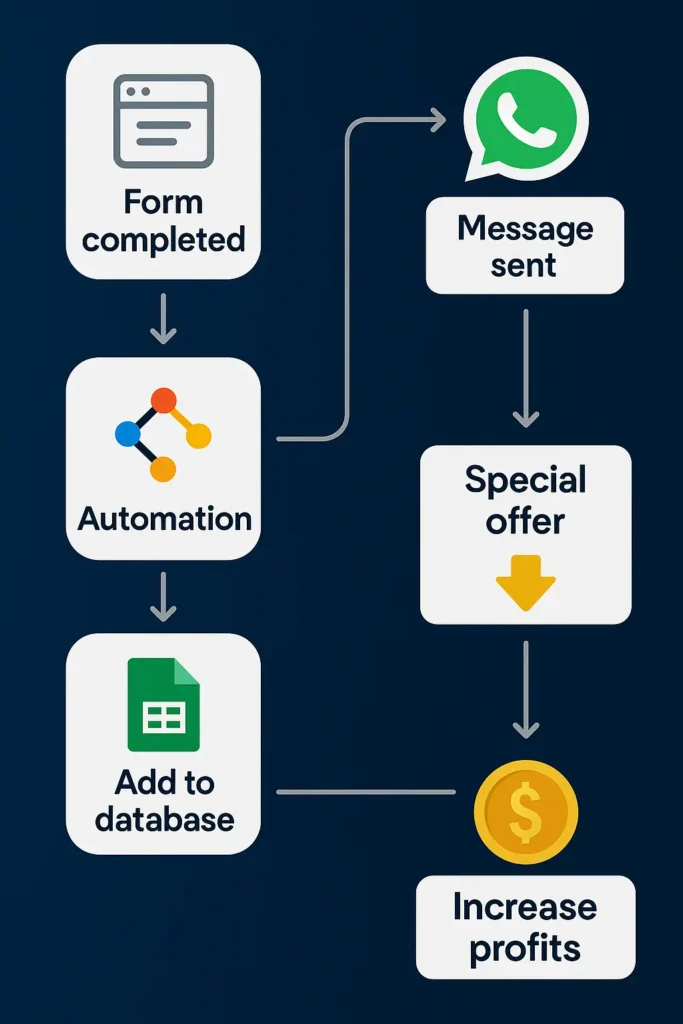
Easy and Intuitive (Ideal for Beginners)
ManyChat: It offers an intuitive interface with a drag-and-drop visual editor, ideal for beginners. It allows you to create chatbots for Facebook Messenger, WhatsApp, SMS and email. It has a free plan with basic features and paid plans starting at US$$ 15/month.
Landbot: Visual platform that allows you to create chatbots for web, WhatsApp and Facebook Messenger. It offers ready-made templates and conditional logic. It has a free plan with 100 chats/month and paid plans starting at €40/month.
Wati: Specialized in automation for WhatsApp, it allows you to create chatbots without code with intuitive logical flows. Offers a 7-day free trial.
Moderately Intuitive (Requires Some Experience)
Chatfuel: Allows you to create chatbots for Facebook Messenger, WhatsApp and Instagram. Offers ready-made templates and AI integration. Has a free plan with limited features and paid plans starting at US$$15/month.
HubSpot Chatbot Builder: Integrated with HubSpot CRM, it allows you to create chatbots for lead qualification and customer service. It offers a free plan with basic features and paid plans with advanced functionalities.
Advanced (Recommended for Users with Technical Experience)
Botpress: Open source platform that allows you to create highly customizable chatbots. Requires technical knowledge for configuration and implementation. It has a free plan with basic features and paid plans with advanced features.
Voiceflow: Focused on creating voice assistants and complex chatbots, it offers a visual interface for designing conversation flows. It has a free plan with limited features and paid plans for advanced features.
Custom AI Model Generation Platforms

These platforms allow you to create AI models that are specifically tailored to the needs of your project.
For example, with services like Azure Machine Learning or Google AutoML, you can train models to predict market trends or consumer behaviors without being a data expert.
Using No-Code tools to develop AI agents not only saves time, but also democratizes the technology.
Choosing the right tool can be a game changer for your project or business. That’s why it’s important to understand what each one offers and how it can align with your goals.
This flexibility and accessibility are the great advantages of No-Code tools in the digital age.
Langchain: A Core Tool for AI Agents
Artificial intelligence (AI) is changing the way we interact with technology.
Today, with No Code platforms, you don’t need to be a developer to create an intelligent agent. These tools simplify the process, making it accessible to everyone.
One of the most interesting tools is the Lang Chain. It allows anyone build a chatbot without having to write code.
This is great for small businesses or anyone who just wants to automate social media responses.
Other tools like Dante, Zoho Zia, Dify, and Synthflow are also popular. They offer a variety of features that can help everyone from the casual user to the most experienced developer.
For example, Dante is perfect for beginners who want to create something simple quickly.
Specifically regarding chatbots, tools like Typebot, ManyChat, Botpress, VoiceFlow, and Laila stand out. They allow you to create bots that not only respond automatically but also learn and adapt over time.
Imagine having a virtual assistant that learns from conversations and improves with each interaction. This is possible with these tools!
It is important to understand the difference between a simple chatbot and a more sophisticated artificial intelligence agent.
Choosing the right tool can significantly impact quality and efficiency of your project. A good intelligent agent can save time, reduce costs and improve user experience.
So if you are thinking about creating your own intelligent agent, consider your needs and choose the right tool. The possibilities are vast and the tools are within everyone’s reach.
With a little creativity and the right platforms, you can transform the way you interact with your customers or followers.
Specific Tools for creating AI Agents
Choosing the right tools to create artificial intelligence agents can make all the difference in your project.
Here are some of the best platforms that can help both beginners and experienced professionals to develop smart solutions effectively:
- Dante – Ideal for Beginners: If you're starting out and want to experiment with creating AI agents, Dante is a great choice. It has an easy-to-use interface and comes with several ready-made settings, which greatly simplifies the development process.
- Zaia – Continuous Learning: This platform is known for truly understanding user needs. With Zaia, each interaction helps to improve responses and recommendations, thanks to its continuous learning system, becoming increasingly accurate and useful.
- Chatvolt – Ideal for companies looking for efficient service adapted to their data, Chatvolt uses advanced models such as ChatGPT and 39 other LLMs to reduce operational costs and optimize the customer experience with highly customizable AI agents.
- Dify – Predicative Analysis: For more complex projects that require predictive analysis and process optimization, Dify is the right choice. It offers advanced machine learning and data integration tools, enabling you to create agents that can predict trends and optimize operations.
- Synthflow – Focus on Interaction: If your project needs an agent that interacts naturally with users, Synthflow is ideal. It combines natural language processing with conversational flow creation, creating an engaging and dynamic user experience.
These tools were chosen because they offer varied and adaptable solutions, depending on the needs of each project.
Choosing the correct tool is crucial to the success of your AI agent, as each has distinct characteristics that can benefit different types of projects. For example, if you need something simple and easy to use, go with Dante.
For continuous learning and adaptation needs, Zaia or Chatvolt may be the best option. Remember that a good project starts with the right choice of tools!
AI Agents vs. Chatbots: Understanding the Differences
Understanding the difference between chatbots and AI agents can help you better choose the technology for your project. Let's simplify this!
You chatbots are like automated attendants that follow a script. They are great for simple tasks like answering frequently asked questions or scheduling an appointment.
Imagine you ask a chatbot about a store’s opening hours, and it promptly responds with the programmed information.
Already the AI agents are more like intelligent personal assistants. They learn from each interaction and improve their responses over time.
If you are looking for a more personalized experience, where the system recognizes your tastes and preferences, an AI agent is the best option.
For example, while a chatbot might give you a standard answer about a cake recipe, an AI agent might suggest adjustments to the recipe based on what it learned about your past preferences or dietary restrictions. This shows how AI agents can be more adaptable and personable.
If your goal is simply to provide information or answer simple questions, a chatbot may be sufficient. But if you’re looking to offer a unique and tailored experience for each user, an AI agent may be the best choice.
Evaluate your needs and see which technology best fits to offer the best service to your users.
Remember, the choice between a chatbot and an AI agent can define your user's level of satisfaction with the interaction. Choose the technology that best suits your objective and offers a remarkable and efficient experience.
Software Architecture: Building Intelligent Applications
When it comes to building artificial intelligence (AI) applications, the software architecture is the foundation that holds everything together. It’s like the skeleton of a building: if it’s not well designed, the building won’t stand up.
For an AI agent to function well, it needs a framework that supports it efficiently, ensuring not only its functioning now, but also its future evolution.
There are some key points you need to consider when designing this architecture:
- Data Organization: Imagine that data is the fuel for your AI agent. If this fuel is not well organized, the agent will not be able to perform well. A well-structured database allows the agent to quickly find what they need, making the entire process more agile and efficient.
- Clear Processes: It is essential to have a clear vision of how each agent process will work, from data collection to user interaction. This helps avoid mistakes and ensures that the agent always knows what to do in each situation.
- Integration with Other Services: These days, an AI agent rarely works alone. It needs to communicate with other applications and services. A flexible architecture facilitates this integration, allowing your agent to adapt and use resources from other systems to improve its performance.
- Choice of Algorithms: Algorithms are the heart of your AI agent. Choosing the most appropriate ones and implementing them correctly is essential so that your agent can learn and adapt over time, improving their accuracy and efficiency.
In addition to these elements, it is important to think about the scalability and adaptability of your architecture. This means designing with not only current needs in mind, but also future ones.
An AI agent that can grow and adapt over time is much more valuable, as it can continue to be useful as new technologies and requirements emerge.
Therefore, a well-planned architecture is not just a technical detail; it is what allows your AI application to actually deliver results and stay relevant in the market.
Investing time and resources in this foundation will save you a lot of headaches and ensure that your AI project is a success.
Revolutionizing Software Creation with AI

In this article, we explore how artificial intelligence is changing the way we create softwares, especially with the help of No-Code tools.
You saw the difference between AI agents and chatbots, discovered tools to develop agents without having to code, and understood the importance of the software architecture.
Now, with this knowledge, you can bring your ideas to life, creating smarter and more efficient projects.
Ready to use what you learned?
No-code tools not only simplify the creation of AI agents, they also open the door to endless innovation.
You don't need to be a programming expert to bring your ideas to the digital world.
Now that you have the knowledge and tools, how about starting to create? No-Code technology is here to make your work easier and expand your possibilities.
With NoCode StartUp, you have everything you need to turn your ideas into reality. Enter our course NocodeIA and learn how to use the best in the world Nocode with Artificial Intelligence.
Further reading:
FAQ – Frequently Asked Questions
How can I create AI agents for free?
Use a no-/low-code stack with free or open-source plans: Dify CE or Flow/LangFlow for the agent, n8n self-host for integrations, Ollama with local models (Llama/Mistral) and ChromaDB/FAISS For RAG; define the use case, index your files, connect tools, and publish via the web (WhatsApp usually requires a paid provider).
How to create your own AI?
For most projects, create your agent using ready-made templates with Dify/Voiceflow/Flowise + n8n/Make and RAC about your data; if you want your model, fine-tune an open-source base (e.g., Llama) with LoRA/QLoRA and serve via API, but in business, RAC is usually faster and cheaper than training from scratch.
How much does an AI agent cost?
It depends on usage and channels: prototype The place can leave. R$0; MVP typical stays in R$200–R$900/month (Model API + Orchestration + Hosting); medium scale It usually varies from R$1.5k–R$6k+/month; The biggest drivers are model (tokens/GPU), channel (WhatsApp/voice), vector base, and monitoring.

